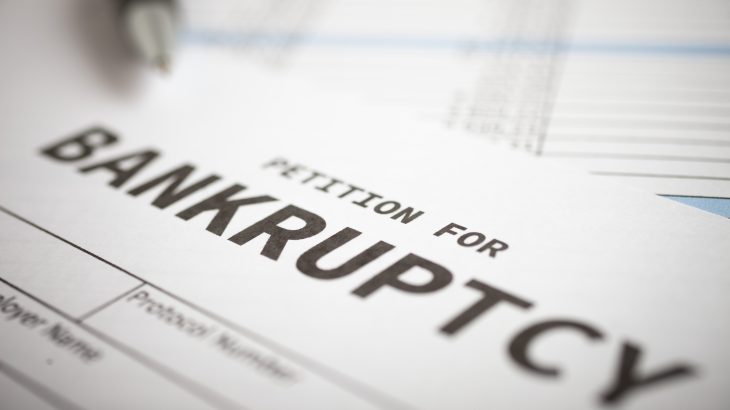Amid a global economic crisis, Neha Mehta answers some frequently asked questions about filing bankruptcy in India.
Q1. When is a Corporate Debtor in default?
A. “Default” is the non-payment of a whole, or a part, of a Corporate Debt when due and payable. Erosion of net worth is not a default under the Code.
Q2. Can a financial institution proceed against a Corporate Debtor under the Code although it may have already taken action under the Securitization and Reconstruction of Financial Assets and Enforcement of Securities Interest Act, 2002 (SARFAESI)?
A. Section 238 of the Code provides that its provisions shall have effect notwithstanding anything inconsistent in any other law or an instrument under any other law. Further the NCLT, Ahmedabad Bench, in Sarthak Creations Pvt. Ltd. vs Bank of Baroda & Others, held that pendency of proceedings before a Debt Recovery Tribunal (DRT) or invocation of SARFAESI Act, will not bar the commencement of CIRP, in view of the non-obstante provisions of section 238 of the Code.
Q3. What is a COC?
A. The COC (Committee of Creditors) is constituted of a Corporate Debtor’s financial creditors. It is a decision maker in CIRP.
Q4. Can a claim, or proof of claim, be filed, or submitted after the elapse of 14 days from the date of a demand notice?
A. Regulation 12 (2) of the CIRP Regulations provides that a Creditor, who fails to submit a claim with proof within the time stipulated in a public announcement inviting claims, may submit by the 19th day of the Insolvency Commencement Date. This amendment to the CIRP Regulations was made effective from July 2018.
Q5. Are home buyers deemed to ‘Creditors’ under the Code?
A. Section 5(8)(f) of the Code was brought into effect from 6th June, 2018 to provide that an amount raised from a real estate allottee is deemed to be a ‘borrowing’. The logic behind such amendment is that home buyers/allottees advance monies to buyers/allottees advance monies to developers, thereby financing a real estate project, and thus they will fall within the definition of a ‘Financial Creditor’ under the Code.
Q6. Would a moratorium ordered against a Corporate Debtor under the Code affect pending proceedings under section 138 of the Negotiable Instrument Act 1881 (NI Act)?
A. Section 138 of the NI Act is a penal provision empowering the competent court to order imprisonment or a fine. A fine is not a money claim or recovery against a Corporate Debtor, and an order of imprisonment against Directors of a Corporate Debtor does not affect CIRP. Therefore, proceedings under 138 of NI Act therefore will not be affected by a moratorium. Further, no criminal proceeding lie under Section 14 of the Code.
Q7. Does the Code provide for punishment against a Corporate Debtor that commits fraud?
A. Under Section 68 of the Code, if any officer of a Corporate Debtor wilfully conceals its property, he or she would be punishable with imprisonment for 3 to 5 years and a fine extending from INR 100,000 upto 10,000,000.
Q8. Can a Creditor and Corporate Debtor arrive at an ‘out of Court’ settlement and withdraw CIRP?
A. Yes, but with a 90% of COC members voting in favour of the settlement.
Q9. Can an RP reduce a claim amount if a Financial Creditor has claimed usurious or extortionate interest?
A. An RP can revise a claim admitted under Regulation 14 of the CIRP Regulations, subject to the RP collating information warranting the revision. While empowered to do so, the RP should, ideally, intimate the NCLT of the revision.
Q10. Can interest, overdue charges and related charges in respect of a credit facility be treated a part of a claim?
A. Yes.
Q11. In a liquidation of a Corporate Debtor, how will proceeds from the sale of assets charged to a secured creditor be treated?
A. If a secured creditor has participated in the liquidation process, it would relinquish its security interest to the liquidation estate, and receive proceeds from the sale of assets per the waterfall mechanism in Section 53 of the Code.
Q12. Can aggrieved employees, operational creditors appeal against not settlement of any outstanding claims?
A. Any person who is a party to, and aggrieved by, a resolution plan may appeal to the National Company Law Appellate Tribunal (NCLAT) under Section 61(3)(iii) of the Code. The appeal be within the grounds permitted.
Q13. Within what period from the approval of a resolution plan will a resolution applicant have to pay the resolution amount?
A. A payment schedule has to form part of a resolution plan, and on its approval, it binds all stakeholders. Therefore, the resolution plan will stipulate the period within which payment is to be made, and it will bound by it, upon the plan being approved by the COC and the NCLT.
Q14. What is the status of personal guarantors in a CIRP?
A. Notwithstanding the pendency of CIRP, Financial Creditors may invoke personal guarantees for causing payment of the debts of the Corporate Debtor.
Q15. Where would the CIRP process be initiated, if a Corporate Debtor has, for example, a corporate office in Delhi and its registered office in Mumbai?
A. The CIRP will have to be initiated in the jurisdiction of the Corporate Debtor’s registered office.
Q16. What is the application fee payable for initiating CIRP under the Code?
A. It is INR 2000 if the applicant is an Operational Creditor, and INR 25,000 if it is a Financial Creditor.
Disclaimer: This article is provided for informational purposes only and is not legal advice. For more advice on the topic, please contact the author.



























